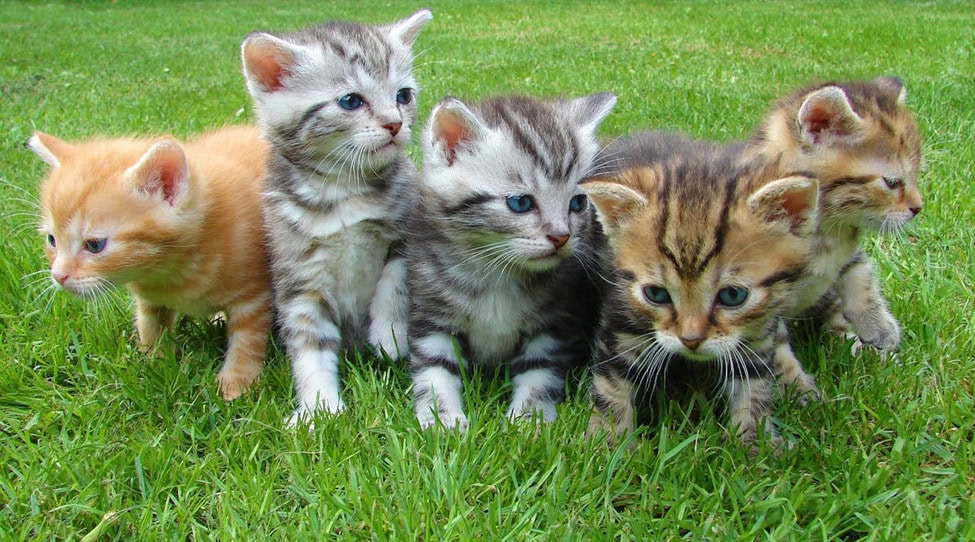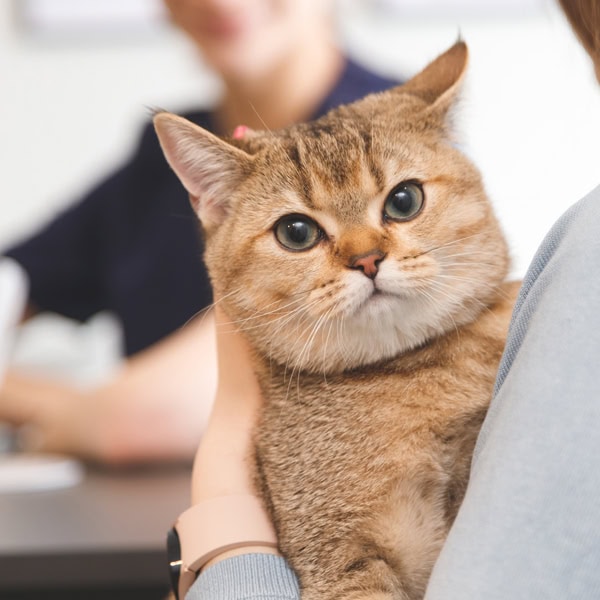
Is your cat frequently getting sick or having trouble recovering from minor injuries? If so, you might be looking for ways to boost your cat’s immune system and improve their overall health. In this article, we’ll explore 12 easy and effective methods to strengthen your cat’s immune system. From dietary changes to environmental adjustments, these tips will help keep your cat strong, healthy, and full of energy. Keep reading to discover simple strategies that can significantly impact your cat’s well-being.
Table of Contents
ToggleUnderstanding Weak Immune Systems in Cats
A weakened immune system in cats can lead to frequent illnesses, slow recovery, and a diminished quality of life. Several factors contribute to a compromised immune system, making it crucial to address them to boost your cat’s immune system effectively.
Poor Nutrition: Cats require a diet rich in high-quality proteins and essential nutrients to maintain a strong immune system. Diets low in these crucial elements can leave them vulnerable to infections and diseases. Ensure your cat’s food is balanced and free from unnecessary fillers.
Chronic Stress: Ongoing stress can severely affect a cat’s immune system. Factors such as household disruptions, insufficient stimulation, or tensions with other pets can undermine their immune defenses, increasing their vulnerability to sickness.
Lack of Veterinary Care: Regular veterinary check-ups are vital for early detection of health issues. Missing vaccinations or failing to address health concerns promptly can leave your cat unprotected against various diseases.
Environmental Toxins: Pollutants, chemicals, and second-hand smoke can weaken your cat’s immune system. It’s crucial to provide a clean and healthy environment to support their overall well-being.
The Benefits of a Strong Immune System for Cats
Enhancing your cat’s immune system brings a wealth of advantages for their well-being and joy.
Disease Resistance: A strong immune system enables your cat to fend off infections and illnesses more effectively. This means fewer vet visits and a healthier, more active lifestyle for your feline friend.
Faster Recovery: Cats with healthy immune systems recover more quickly from injuries and illnesses. Their bodies can heal faster, allowing them to return to their normal, playful selves sooner.
Enhanced Vitality: A well-functioning immune system supports your cat’s energy levels and general well-being. With a strong immune system, your cat is likely to have a shiny coat, good appetite, and an overall lively demeanor.
12 Effective Ways to Boost Your Cat’s Immune System
A strong immune system is essential for your cat’s health and well-being. Boosting your cat’s immune system involves several proactive measures, from diet and exercise to stress management and environmental care. Here are twelve effective strategies to enhance your feline friend’s immunity and keep them in peak health.
1. Provide Fresh Water
Keeping your cat well-hydrated is crucial for their overall health and immune system. Cats are not always inclined to drink enough water, which can lead to dehydration and affect their overall well-being. Ensuring constant access to fresh water supports their immune system and promotes good health.
How to Do It:
- Place Multiple Water Bowls: Position water bowls in various locations around the home.
- Use a Water Fountain: Consider a cat water fountain to encourage more frequent drinking.
- Clean Bowls Regularly: Wash water bowls daily to prevent bacterial growth.
- Monitor Water Intake: Keep an eye on your cat’s water consumption and seek advice if you notice changes.
- Avoid Contaminants: Ensure the water is free from chemicals and pollutants.
2. Keep Fresh Water Available
A clean living environment helps reduce the risk of infections and supports a strong immune system. Dirt, dust, and pollutants can compromise your cat’s health and stress their immune system.
How to Do It:
- Clean Litter Boxes Daily: Scoop litter boxes daily and wash them weekly to prevent the spread of bacteria.
- Vacuum Regularly: Remove dust and allergens by vacuuming carpets and furniture frequently.
- Wash Bedding: Clean your cat’s bedding and toys regularly.
- Avoid Smoke: Keep your cat away from cigarette smoke and other pollutants.
- Use Pet-Friendly Cleaners: Opt for non-toxic cleaning products safe for pets.
3. Ensure Adequate Exercise
Exercise helps manage weight, reduces stress, and promotes overall vitality. Engaging your cat in daily activities strengthens their immune system and keeps them active and happy.
How to Do It:
- Provide Interactive Toys: Use toys like wand teasers and laser pointers to encourage play.
- Set Up Scratching Posts: Offer scratching posts and climbing structures for physical exercise.
- Engage in Playtime: Dedicate at least 30 minutes a day to interactive play sessions.
- Rotate Toys: Keep playtime interesting by rotating different types of toys.
- Monitor Activity Levels: Ensure your cat stays active, especially if they are indoors most of the time.
4. Provide a Nutrient-Rich Diet
As obligate carnivores, cats require high-quality animal proteins and essential nutrients to thrive. Providing a diet packed with vitamins, minerals, and proteins is key to strengthening their immune system and protecting them from illnesses.
How to Do It:
- Choose High-Quality Cat Food: Choose cat foods where real meat is the main ingredient, steering clear of fillers and synthetic additives.
- Consult Your Vet: Get recommendations on diet based on your cat’s age, weight, and health conditions.
- Incorporate Supplements: Consider adding supplements like omega-3 fatty acids, which support immune function.
- Provide Fresh Water: Make sure your cat always has a supply of clean, fresh water available.
- Monitor Weight: Adjust portions to maintain a healthy weight, avoiding obesity which can compromise immune health.
5. Monitor and Manage Weight
Keeping your cat at a healthy weight is essential for a robust immune system. Excess weight can trigger numerous health problems, including compromising their immune defenses. Regularly monitoring and managing your cat’s weight helps keep them healthy and supports their immune function.
How to Do It:
- Weigh Regularly: Check your cat’s weight periodically and track changes.
- Adjust Portions: Follow your vet’s advice on portion sizes and feeding guidelines.
- Avoid Free-Feeding: Measure meals and avoid leaving food out all day.
- Encourage Activity: Promote exercise through play and interactive toys.
- Seek Veterinary Advice: Consult your vet for personalized weight management plans.
6. Ensure Adequate Rest
Providing a comfortable and quiet resting area helps support their immune system and overall well-being.
How to Do It:
- Provide Cozy Beds: Offer comfortable and clean bedding in quiet areas of your home.
- Minimize Disruptions: Keep noise and disturbances to a minimum to promote restful sleep.
- Create a Safe Space: Ensure your cat has a designated spot where they can relax undisturbed.
- Observe Sleep Patterns: Monitor your cat’s sleep habits and consult your vet if you notice any changes.
- Encourage Rest: Allow your cat to sleep as needed without interruptions, especially during illness or recovery.
7. Reduce Stress
Stress can greatly affect your cat’s immune system, potentially causing health issues and altering their behavior. Effectively managing stress is essential for supporting a robust immune system and promoting your cat’s overall health and happiness. Providing a calm and stable environment helps boost your cat’s immunity.
How to Do It:
- Create a Safe Space: Designate a quiet area where your cat can retreat and relax.
- Provide Enrichment: Offer toys and activities to keep your cat engaged and mentally stimulated.
- Maintain Routine: Keep feeding and playtime schedules consistent to reduce anxiety.
- Introduce Changes Gradually: Make any changes to their environment or routine slowly to minimize stress.
- Use Calming Products: Consider pheromone diffusers or calming supplements if needed.
8. Keep Them Clean
Keeping your cat’s environment spotless is crucial for preventing infections and bolstering their immune system. Accumulated dirt, dust, and pollutants can negatively impact your cat’s health and put additional strain on their immune defenses. To ensure your cat thrives, maintaining a clean and hygienic living space is key.
How to Do It:
- Clean Litter Boxes Daily: Scoop litter boxes daily and wash them weekly to prevent the spread of bacteria.
- Vacuum Regularly: Remove dust and allergens by vacuuming carpets and furniture frequently.
- Wash Bedding: Clean your cat’s bedding and toys regularly.
- Avoid Smoke: Keep your cat away from cigarette smoke and other pollutants.
- Use Pet-Friendly Cleaners: Opt for non-toxic cleaning products safe for pets.
9. Avoid Exposure to Toxins
Exposure to environmental toxins can weaken your cat’s immune system and lead to health problems. Ensuring your cat is protected from harmful substances is crucial for maintaining their immune health and overall well-being.
How to Do It:
- Keep Chemicals Safe: Store household chemicals and cleaning products out of reach.
- Avoid Toxic Plants: Remove harmful plants like lilies and poinsettias from your home.
- Use Pet-Friendly Products: Choose non-toxic cleaning supplies and pest control methods.
- Ventilate Areas: Ensure proper ventilation in areas where chemicals are used.
- Regularly Check for Hazards: Inspect your home for potential toxins and hazards.
10. Avoid Overuse of Antibiotics
While antibiotics are sometimes necessary, overusing them can disrupt your cat’s gut flora and impair their immune system. Using antibiotics only as prescribed by your vet ensures they remain effective and prevents harm to your cat’s overall health.
How to Do It:
- Use Antibiotics as Prescribed: Follow your vet’s instructions precisely when administering antibiotics.
- Complete the Course: Always finish the prescribed course to avoid resistance.
- Discuss Alternatives: Talk to your vet about alternative treatments if antibiotics are frequently needed.
- Monitor for Side Effects: Watch for any adverse effects and report them to your vet.
- Promote Gut Health: Consider probiotic supplements to support gut health after antibiotic use.
11. Provide High-Quality Supplements
Supplements can support and enhance your cat’s immune system, especially if their diet lacks certain nutrients. High-quality supplements tailored to feline health can provide additional support for their immune function and overall well-being.
How to Do It:
- Consult Your Vet: Get recommendations on the best supplements for your cat’s needs.
- Choose Trusted Brands: Opt for reputable brands known for their quality and safety.
- Consider Omega-3s: Omega-3 fatty acids can help reduce inflammation and support immune health.
- Add Probiotics: Probiotics can boost gut health and improve immune function.
- Follow Dosage Instructions: Administer supplements as directed to ensure effectiveness.
12. Ensure Proper Grooming
Consistent grooming is crucial for keeping your cat’s coat and skin in top shape, which is essential for a robust immune system. By regularly grooming your cat, you can lower the risk of skin infections and effectively eliminate allergens and parasites that might compromise their immune defenses.
How to Do It:
- Brush Regularly: Brush your cat’s fur to remove loose hair, dirt, and parasites.
- Check for Parasites: Inspect your cat’s coat for fleas, ticks, and other parasites.
- Trim Nails: Regularly trim your cat’s nails to prevent overgrowth and injury.
- Clean Ears: Check and clean your cat’s ears as needed to prevent infections.
- Bathing: Bathe your cat only if necessary, using a cat-specific shampoo.
FAQs
Q1: What are the signs that my cat’s immune system might be compromised?
A1: Signs of a weakened immune system in cats can include frequent infections, slow wound healing, lethargy, changes in appetite, and unusual weight loss. If you notice these symptoms, it’s best to consult your vet for a thorough examination.
Q2: Are there specific foods that are best for boosting my cat’s immune system?
A2: Foods high in protein, vitamins, and minerals are ideal for boosting a cat’s immune system. Look for high-quality cat foods that include real meat, fruits, vegetables, and omega-3 fatty acids. Seek personalized advice from your veterinarian to address your cat’s specific health requirements.
Q3: Can stress really affect my cat’s immune system?
A3: Yes, stress can significantly impact your cat’s immune system, leading to health issues and behavioral problems. Reducing stress through environmental enrichment, consistent routines, and providing a calm space can help maintain a healthy immune system.
Conclusion:
In this guide, we delved into proven methods for enhancing your cat’s immune system. We discussed the importance of a nutritious diet, regular physical activity, and a hygienic living space to support your cat’s health and well-being. By following these 12 practical tips, you can help strengthen your cat’s immune system and improve their overall health. Keeping your cat hydrated, feeding them nutritious food, and reducing stress are key to supporting their well-being. This guide offers valuable solutions to help keep your feline friend healthy and happy.



